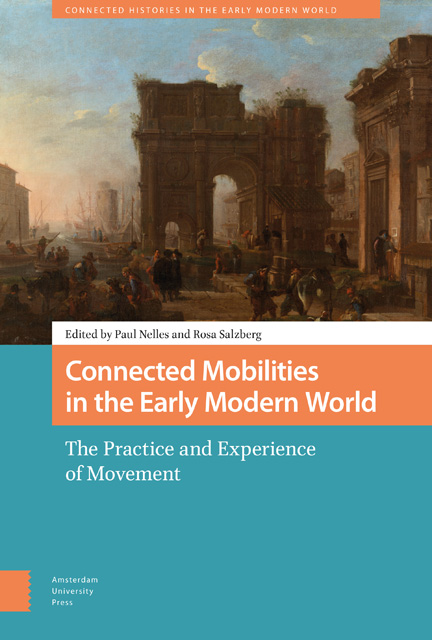1 - Linguistic Encounter: Fynes Moryson and the Uses of Language
Published online by Cambridge University Press: 15 June 2023
Summary
Abstract
Fynes Moryson’s Itinerary (1617) is an enormously rich text for the study of travel practices in early modern Europe, though it has received relatively little sustained scholarly attention from this perspective. Moryson’s text is richly multi-lingual and uniquely engaged with questions of language acquisition, linguistic encounter, and multi-lingual communication. This essay uses Moryson’s travel writings as a lens through which to understand how far the encounter with linguistic difference underlay and animated early modern experiences of mobility. Considering both Moryson’s account of his own travels and his didactic writings on language learning, this article explores the uses of language for the early modern traveller, showing the linguistic practices that underpinned social, economic, and confessional encounters in late sixteenth-century travel.
Keywords: translation; language acquisition; travel; travel writing; Fynes Moryson; communication
Writing in 1617, the English traveller Fynes Moryson noted how difficult and unprofitable it could be to travel without the knowledge of other languages. “[A]t the first step” of the traveller’s journey, Moryson wrote, “the ignorance of language doth most oppresse him, and hinder the fruite he should reape by his journey.” Before he had learnt the necessary language, the traveller would be “as it were deafe and doumb, and astonished with this Babylonian confusion of tongues.” What’s more, Moryson’s traveller would be unable to profit from his travels or from his encounters with new people, since he could “neither aske unknowne things, nor understand other mens speeches, by which hee might learn much.” Moryson understood that geographic mobility in early modern Europe was frequently shaped by the experience of linguistic difference. Though the question of how to transcend language barriers was central for many early modern travellers, the same cannot be said of historians of travel and migration in this period. This is understandable, not least because studying linguistic encounters that were largely oral and often unrecorded comes with its own methodological challenges. But to better comprehend how early modern mobilities worked requires an understanding of linguistic encounter on the ground: a sense of how multilingual communication was practised by the mobile populations of early modern Europe and how experiences of mobility were affected by linguistic difference.
- Type
- Chapter
- Information
- Connected Mobilities in the Early Modern WorldThe Practice and Experience of Movement, pp. 41 - 62Publisher: Amsterdam University PressPrint publication year: 2022



